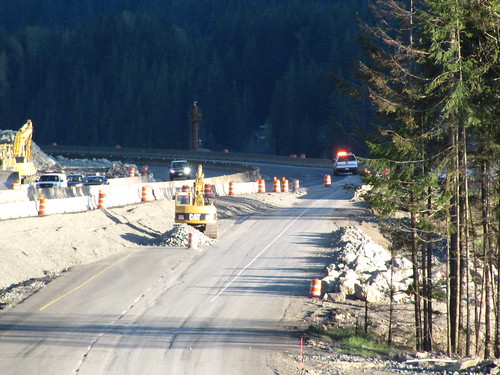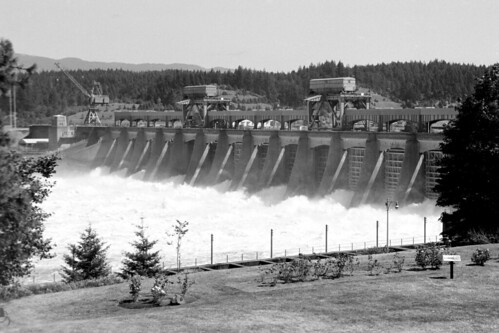Dear Friends and Neighbors,
With the kids back in school, the leaves starting to change colors and the crisp autumn air starting to settle in, I thought it would be good to send you a quick update.
Talk of a gas tax increase continues…
While we were successful in defeating a 10.5 cents-per-gallon gas tax increase during session (and special sessions), the issue is certainly not dead. The governor and House Democrats desperately want to raise the gas tax and are talking about a possible special session in November to do so. There are mega projects in the Puget Sound region they want to fund, with just a pittance being spread across the rest of the state. But regardless of WHERE that money is to be spent, the bigger issue is ACCOUNTABILITY. We have seen too many problems within the Washington State Department of Transportation’s construction management system to just throw more money at it. Many of my colleagues and I believe we need to “Fix it before you fund it.”
Now, you have the opportunity to weigh in on any potential gas tax increase. Next Wednesday, Oct. 2 from 6 to 9 p.m. in the theater at Central Valley High School (which is at 821 S. Sullivan Road in Spokane Valley), the Senate Majority Coalition Caucus is hosting one of a series of 10 statewide meetings focusing on transportation issues. I encourage citizens to attend the Senate committee meeting to express their opinion on this issue. If you can’t attend the meeting, you can click here to leave your comments online.
Climate Legislative and Executive Workgroup: My uphill battle to bring common sense into the discussion…
We all want to be good stewards of our environment and preserve its use for generations to come. We also expect government to make informed decisions when it comes to policies that affect our environment. These decisions should absolutely be based on sound facts and take into consideration the impact on property rights, the availability of jobs, the economy and families – including fuel, energy, food and housing costs.
 Senate Bill 5802, which passed earlier this year, established the Climate Legislative and Executive Workgroup. This workgroup is in the process of examining policies impacting the cyclical nature of our climate, including policies that have worked – or have not worked – in other states and countries.
Senate Bill 5802, which passed earlier this year, established the Climate Legislative and Executive Workgroup. This workgroup is in the process of examining policies impacting the cyclical nature of our climate, including policies that have worked – or have not worked – in other states and countries.
Why is this work important? Because the Legislature is taking the rare step of quantifying the impact these decisions would have on the economy and families.
To learn more about the workgroup, including past and upcoming meetings, click here. Below are dates and locations of the next three meetings. These meetings are designed specifically to hear from the public. I absolutely encourage you to participate!
- Oct. 16, 5-7 p.m. | Music Building Auditorium (Bldg. #15, Room 110), Spokane Falls Community College campus at 3410 W. Fort George Wright Drive, Spokane.
- Oct. 23, 6-8 p.m. | Bell Harbor International Conference Center – 2211 Alaskan Way, Seattle.
- Dec. 6, 2-4 p.m. | House Hearing Room A – State Capitol Campus, Olympia.
As a member of this workgroup, here are a few thoughts I keep in mind:
- Washington State is responsible for 0.003% of the world’s carbon emissions.
- China’s emissions in two days is equal to Washington state’s yearly emissions.
- Seventy percent of Washington’s electricity mix is made up of carbon-free, renewable hydropower. As a result of our very low yearly emissions, efforts to meet this state’s goals of 25% reduction in emissions by 2035 and 50% reduction by 2050 could have a negative impact on your mobility, quality of life and the state’s economy without affecting climate change outcomes.
- The companies and public agencies subject to carbon reduction policies employ thousands of Washington workers and provide important goods and services including food, electricity, fuel, higher education, transportation, building materials and more.
- There are concerns about how much the state is spending to achieve the greenhouse gas (GHG) reductions. Washington is currently spending about $35 per ton of carbon reduced, while California spends about $13 per ton of carbon reduced.
- Policymakers should be looking for policies which get the most bang for the buck. We need to ensure that for the money spent, we will receive the maximum environmental benefit.
- Regulations could raise costs that would hurt employment in companies that become less competitive compared to other states and countries. Climate policy also can negatively impact businesses, especially those whose products are highly energy intensive or that have difficulty passing cost increases on to customers. The impacts on business costs and profits can also prompt changes in employment.
- Increases in the cost of using energy could reduce real economic output, purchasing power, and lower aggregate demand for goods and services.
- These policies could cause Washington households to face higher prices both directly for electricity, natural gas, and gasoline, and indirectly as businesses pass costs for GHG reduction on to consumers, for everything from food to building materials.
And, as I sit in on these workgroup meetings, here are some of the questions I have:
- How will the implementation of the proposed policies affect the quality of life for my constituents and all Washington state residents?
- How much will these new policies cost the average family in our state?
- What will these policies do to the business competiveness in our state?
- Could these policies cause a reduction in productivity across the economy, and have negative trade implications due to reduced competitiveness?
- How will these policies affect Washington’s largest employers? Small businesses? Agriculture? Manufacturing? What jobs will be affected? Will so-called ‘clean energy’ jobs adequately replace these job losses?
- How much will these policies cost cities and local governments?
- As a percentage of their incomes, could lower and middle income households face larger cost increases than upper-income households?
- How much more will we pay at the pump? Will alternative fuels be commercially available and in similar quantities as on-road gasoline or diesel? What about our energy bills?
- Are these policies applicable to residents of Eastern Washington? What about those required to drive long distances to work?
- With a hard-hit economy, many residents are having a hard time making ends meet. Why are we rushing to enact little-known policies that could have a large impact on our wallets?
- Are we learning from the mistakes of other states and countries that have seen negative economic impacts?
- How can we determine if new emissions reduction technologies are viable?
- Washington only represents a small portion of global GHG. What about emissions from other countries with near nonexistent regulations like China?
As you can see, there are too many unknowns. My frustration with the task force’s work to date is that little is being done thus far to quantify the costs and benefits separately so we can begin to analyze and understand the impacts on our state’s families, employers and those looking for work. I sometimes wonder if Gov. Inslee simply wants what he wants, regardless of the consequences.
 Celebrating the new Keller Ferry…The Sanpoil
Celebrating the new Keller Ferry…The Sanpoil
In a fantastic example of a state/federal/tribal coalition, we celebrated the new Keller Ferry earlier this summer. As many of you know, the previous ferry, the Martha S., had been in service since 1948. While she served admirably for decades, her reliability and seaworthiness were becoming a real concern for the many school busses, cars and trucks that depend on the Columbia River crossing at Keller. In fact, when I invited members of the House Transportation Committee to tour the area a few years ago, some legislators were hesitant to even get on the boat! They took one look at the wind, waves and the worn appearance of the ferry and said, “You want me to get on that?” Needless to say, this was a great motivating factor to get the ball rolling.
A huge thank you goes out to the Colville Confederated Tribes for their efforts to be a financial partner with the state and federal government in this solution. This is such a positive example of what can happen when everyone works together. The end result is a new, state-of-the-art ferry that will SAFELY transport our children, families and agriculture goods across the river for decades to come!
For more information on the new Keller Ferry (The Sanpoil), click here. To view more photos of the event, click here.
In closing…
It has been great to see so many of you as I’ve travelled around the 7th District these past few months. I so much appreciate the kind words and support you’ve offered over the years. It is such an honor to serve you in Olympia. Please know that while you and I may not agree on every issue, my door is always open to discuss the issues that you’re concerned about.
Sincerely,

Shelly Short
State Representative Shelly Short
7th Legislative District
E-mail: shelly.short@leg.wa.gov
Web site: houserepublicans.wa.gov/short
Olympia Office (January-April)
436 John L. O’Brien Building – P.O. Box 40600 | Olympia, WA 98504-0600
(360) 786-7908 or Toll-free: (800) 562-6000
District Office (May-December)
P.O. Box 184
Republic, WA 99166
(509) 775-8047















